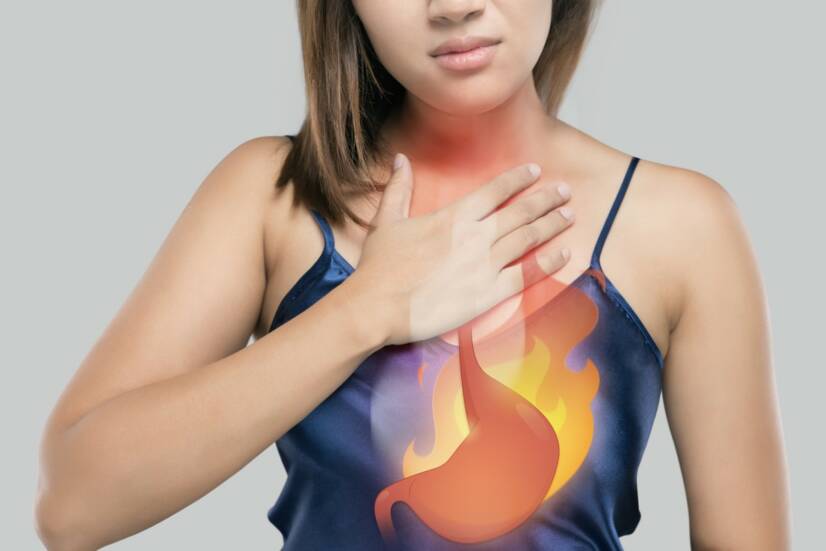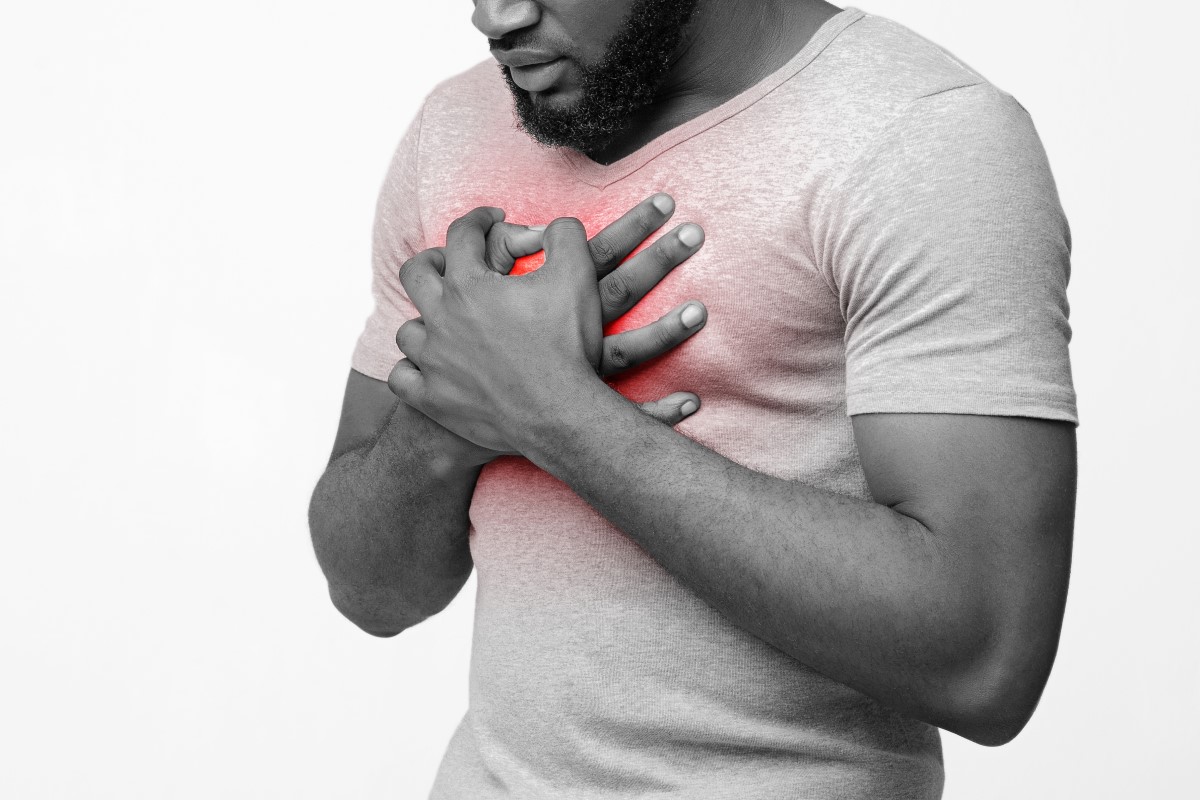- sciencedirect.com - Heartburn
- webmd.com - What Is Acid Reflux Disease?
- healthline.com - Everything You Need to Know About Acid Reflux and GERD
Heartburn: Causes, Symptoms, Treatment and Diet

Heartburn is also called pyrosis, cardialgia, and acid indigestion. If heartburn is neglected, serious health problems can occur.
Heartburn affects approximately 20 to 30% of people in economically developed countries.
It affects men more often than women.
About 35% of overweight people suffer from it.
In women, it often occurs during pregnancy.
Heartburn during pregnancy is caused by:
- hormones that are produced in pregnancy
These can loosen the lower sphincter, which is located between the esophagus and the stomach. This normally keeps the stomach contents in the stomach.
- the growth of the child
The growth of the baby causes an increase in pressure on the stomach. As a result of this action, gastric juice leaks into the esophagus.

Heartburn causes problems, especially for adults. It is considered to be the most significant symptom of gastroesophageal reflux disease (GERD). The cause of the disease is the increased return of stomach contents to the oesophagus.
Simply put, we can say that heartburn is said to be a disease when acidic gastric juice persistently or regularly flows up into the oesophagus and leaves traces of disease on the sensitive mucous membrane.
The condition is serious when acidic gastric juice gets back into the oesophagus every day or every week in large quantities.
What is the purpose of stomach acid in our body?
As soon as the ingested food enters the stomach, gastric juice starts to form. In one day, the stomach produces about 2 to 3 litres of gastric juice. With the help of this, our digestive tract is able to break down the food we eat.
Stomach juice consists of:
- hydrochloric acid – ensures an acidic environment
- pepsin - breaks down proteins
- lipase - breaks down fats
- gastricsin - affects the digestion of proteins from dairy foods
- intrinsic factor - aids absorption of vitamin B12
- mucus
Stomach juice aids in the digestion of foods that are rich in protein (meat, fish, eggs). It also protects the human body from harmful bacteria. Stomach acid performs these functions:
- It converts the proteins we take in from our diet into a form that can be processed by the small intestine.
- It activates the enzyme pepsin, which helps to further digest protein.
- It prevents microorganisms coming from the diet from multiplying in our body.
- It shows the body when the mushy food is ready to leave the stomach.
Which patient groups are at higher risk of reflux disease?
There is a higher incidence of reflux disease in children suffering from neurological disease, in obese people, in patients with esophageal and gastric anomalies, in patients suffering from chronic respiratory disease (asthma, cystic fibrosis) and in patients after lung transplantation.
Gastroesophageal reflux can trigger or worsen the intensity and frequency of bronchial asthma attacks in some.
Did you know...
If you suffer from heartburn for more than a month, you should see a doctor.
What eating habits should we adopt to avoid heartburn?
For the proper functioning of our digestive tract, we should be guided by sensible timing of individual meals.
Regular breaks between meals provide a kind of order to the metabolism. If we want to avoid heartburn, we should be disciplined and follow a regular eating rhythm.
We should eat during the day and not late in the evening or at night. Our stomach needs as much time as possible to rest at night in order to function properly.
Symptoms
Typical symptoms of heartburn include:
- a sour, burning burp,
- feeling like vomiting,
- burning pain behind the sternum,
- pressure in the stomach,
- a feeling of fullness,
- morning coughing or frequent coughing,
- hoarse voice, hoarseness,
- difficulty swallowing,
- an aftertaste in the mouth,
- unbounded pain in the chest.

What symptoms do newborns experience?
The occurrence of the return of gastric juices to the esophagus is very common in newborns (especially premature). In most newborns, it takes place without symptoms.
Reflux episodes are manifested only by belching. Other symptoms do not appear in most cases.
Heartburn affects approximately 70% of newborns.
Behavioural changes (irritability) may occur in some children. Reflux disease may be associated with aspiration episodes (aspiration pneumonia). This may be the cause of develpomenral issues in the child.
It can be a symptom of, for example...
Heartburn in adults can be a symptom of some diseases:
- Gastroesophageal reflux disease - a disease caused by repeated reflux of gastric contents from the stomach into the esophagus. The main symptoms include heartburn.
- Gastric ulcers - characterised as painful ulcers that are located in the inner lining of the stomach, i.e. the gastric mucosa. One of the symptoms is heartburn.
- Esophagitis – an inflammatory disease of the esophagus. It can have an acute or chronic course. One of the symptoms of the disease is heartburn.
- Gastritis – an inflammatory disease of the stomach. It is classified into acute and chronic gastritis. It presents with heartburn.
- Esophageal cancer – one of the malignant diseases of the esophagus. The main cause of the development of the disease is tissue damage in reflux disease.
- Ovarian cancer - Presents with indigestion and heartburn.
- Sjogren's syndrome - an autoimmune rheumatic disease that presents with heartburn.
What causes heartburn?
The most common causes of heartburn include:
- reflux disease,
- inflammation of the inner lining of the stomach,
- gastric and duodenal ulcers,
- upset stomach.
If the patient experiences reflux only occasionally, there is no cause for concern. But if heartburn is persistent, it may be one of the manifestations of gastroesophageal reflux disease (GERD).
FYI...
Did you know that some people experience heartburn especially when they are stressed?
Risk factors involved in the development of reflux include:
- inappropriate eating habits – eating too fast, not chewing food properly,
- poor diet – sweets, citrus fruits, fatty and greasy foods, spicy foods,
- some types of drinks - coffee, alcohol, carbonated drinks, energy drinks,
- smoking,
- prolonged stress,
- psychiatric problems,
- taking certain medications - analgesics, antibiotics, antidepressants,
- diseases of the digestive tract,
- tight and pressing clothes in the stomach area,
- pregnancy (especially in the last months),
- hereditary/genetic predisposition.

Poor eating habits are a significant risk factor for heartburn. For example, many of us like to consume fried food while watching our favourite programme in the evening. Even if we think that such seemingly harmless hunger pangs cannot harm us, it is these habits that can trigger heartburn.
Progression
Heartburn is caused by the upflow (reflux) of gastric juice from the stomach into the oesophagus.
This condition is caused by a weakening of the lower oesophageal sphincter, which is located between the oesophagus and the stomach.
The lower oesophageal sphincter normally prevents gastric juices from going back up into the oesophagus and subsequently into the larynx. If there is a disturbance in this process, acidic juices are released.
How is it diagnosed?
In practice, the following methods are used to diagnose the disease:
- Endoscopic (gastroscopic) examination – serves to examine the upper part of the digestive tract. Taken tissue samples help to determine the exact cause of the disease.
- Long-term pH measurement – this measurement determines the amount of stomach contents returned to the oesophagus and how long the fluid stays in the oesophagus.
- Manometry – aimed at examining the function of the esophagus.
- Urea breath test – is used to diagnose gastroduodenal infection caused by Helicobacter pylori.
- X-ray examination – used when esophageal damage is suspected.
- Examination by an otolaryngologist - patients who suffer from cough, congested larynx and recurrent hoarseness should undergo this examination.
Treating heartburn
For the treatment of heartburn, the following groups of drugs are used:
- ANTACIDS
Antacids are known for their neutralizing effect on excess stomach acid. The patient feels relief within 5 minutes. The disadvantage is their short and sometimes insufficient effect.
They are used against:
- hyperacidity,
- peptic ulcers,
- erosive changes in the mucosa of the gastrointestinal tract,
- esophageal reflux,
- acute pancreatitis,
- upset stomach (dyspepsia).
As antacids, mainly magnesium, calcium and aluminium compounds are currently used. In most cases, the above-mentioned compounds are combined. For example, magnesium salts have a laxative effect, while aluminium and calcium salts can cause constipation.
Some products also contain alginic acid. Alginic acid has an anti-reflux effect. Medicines containing alginic acid are taken after meals (1-2 hours). At that time, the stomach contents are most acidic.
- PROTON PUMP INHIBITORS
Proton pump inhibitors block stomach acid production. They are among the most effective antisecretory agents. They are considered to be the most commonly used group of drugs in the treatment of gastroesophageal reflux disease.
They are also suitable for long-term use.
Patients are advised to take one tablet in the morning on an empty stomach 30 to 60 minutes before the first meal. Such use serves to cover acid production during the day and fluctuations in acid levels between meals. Food promotes acid production, and an inhibitor taken in the morning will effectively block activated proton pumps.
Patients are not recommended to take inhibitors in the evening. The evening dose alone may cause lower treatment efficacy. Such administration of inhibitors should be reserved for patients who suffer from heartburn at night.
The maintenance dose involves the administration of inhibitors once a day. In some cases, even every other day is sufficient.
- H2 RECEPTOR ANTAGONISTS
H2 receptor antagonists interfere with all phases of hydrochloric acid formation. They are suitable for patients who experience nausea, congestion and heartburn only rarely.
Their effect comes on after about an hour after ingestion. Among the advantageous properties is the length of their action. They have the best effect when taken on an empty stpmach.
The disadvantage is that with prolonged use, there is a decrease in the effect.
- PROKINETICS
Prokinetics are used to promote motility of the digestive tract. The mechanism of action is selective stimulation of the musculature of the digestive tube.
In this way, they promote physiological peristalsis and accelerate the transit of intestinal contents.
| PRODUCT | ACTIVE SUBSTANCES | EFFECT | FORM OF APPLICATION |
| GAVISCON chewable tablets |
|
| Chewable tablets |
| Rennie ICE without sugar |
|
| Chewable tablets |
| TALCID |
|
| Chewable tablets |
| Maalox |
|
| Chewable tablets |
| Helicid 20 |
|
| Hard capsule |
| Nolpaza 20 mg |
|
| Gastro-resistant tablets |
| Iberogast perorálny roztok |
|
| solution |
From natural products it is mainly:
- Ginger
It contains more than 400 medicinal substances. Ginger soothes an upset stomach, stimulates the flow of bile, helps with heartburn and counteracts cramps.
- Mastic, also known as tears of Chios
It contains mainly phytosterols, terpenes, polyphenols and many other substances that are used in medicine and healing. It supports the proper function of the digestive tract, helps with heartburn, is used as a supportive treatment for Helicobacter pylori.
It is a good idea to reach for a cup of tea when you feel occasional heartburn. Herbal teas are known for their beneficial effects on proper digestion. Popular herbs include fennel, cinnamon, chamomile and rooibos.
RECIPES - dietary tips
A tip for breakfast:
Oatmeal porridge
You need:
- 4 tablespoons oat flakes
- a pinch of salt
- 1 teaspoon sugar/sweetener
Preparation:
Mix the ingredients in a bowl and pour boiling water over. The flakes should be submerged in the water.
Let the mixture stand for 5 minutes to swell.
A tip for lunch:
Vegetable soup
Ingredients:
- 1 litre vegetable/meat stock
- 1 cabbage
- 200 g kidney beans
- 2 carrots
- 3 potatoes
- 2 onions
- 1 clove of garlic
- 1 tablespoon of olive oil
- salt, pepper
- 2 tablespoons chopped parsley
Preparation:
Boil the broth.
Cut the cabbage into slices, clean the beans, carrots and potatoes, rinse and cut into pieces.
Peel and chop the onion and garlic. Heat the olive oil in a saucepan and add the onion and garlic.
Then add the vegetables and potatoes.
Pour in the broth and cook for 25 to 30 minutes.
Finally add salt and black pepper.
Garnish the soup with parsley before serving.
Mackerel salad with rocket
Ingredients:
- 2 boiled eggs
- 200 g carrots
- 100 g rocket (also called arugula, garden rocket, and eruca)
- 200 g smoked mackerel fillets
- 1 tablespoon cooked corn
- 150 g yoghurt
- salt, black pepper
- ½ bunch dill
Preparation:
Peel and chop the boiled eggs. Peel and grate the carrots.
Wash, dry and chop the arugula.
Cut the mackerel into pieces and mix with the carrots, arugula, eggs and corn.
Season the yoghurt with salt and black pepper.
Add the dill leaves to the mixture. Pour the dressing over the salad.
What causes heartburn?
Interesting resources










